Photo by Julia M Cameron from Pexels
Selling knowledge is one of the most profitable projects you can undertake – when done right.
Over the last decade, it’s become easier for anyone to monetize their knowledge online by sharing a skill or expertise. Course creators will either share their knowledge through their self-hosted courses and material or through courses and material they’ve uploaded to marketplaces.
Different Formats For Selling Knowledge
Before you start creating a course or program, you should first understand the various formats for distributing your knowledge, all of which have benefits and drawbacks.
Courses
Courses are the most comprehensive format in the passive income genre. A course is a pre-recorded presentation that includes audio and visual elements. It can also include tests, assignments, and reading material, depending on how traditional you want your course to be and what you’re teaching.
For most course creators, the visual and audio element is the most important as it is the best method to keep attendees engaged without overwhelming them. Because online courses are becoming an easy way to digest information in a short time.
But, even within courses, there are several subsets, which include: video tutorials, slides, animation, and screen recordings.
Video Tutorials
This format mimics a traditional lecture. The instructor will usually be standing in front of a whiteboard and sharing information with their audience that way. Talking heads have also become popular in this format.
If you have the personality and energy to maintain this type of format it can be engaging and resonates with your audience.
Slides
Slide with a voice-over is becoming popular. Because this format helps attendees focus on the subject matter as it reduces distractions. It’s also easier to pause the video and capture the basic points being taught without having to rewind.
Slides are also more mobile-friendly as users can screenshot information while they follow along.
Animation
For a short time, explainer videos were extremely popular for course material.
While the animation isn’t a bad idea when used sparingly, if your entire course becomes one explainer video – without any other visuals to break up the animated talking heads – the course can quickly feel monotonous and hard to watch.
Screen Recordings
For subjects that require plenty of technical skills, a screen recording format is going to be the most beneficial for attendees, as they get to follow along and see the process in action. It’s also one of the easiest methods to DIY because you only need to record your screen walking through the process you want to teach, and once you’ve edited that portion as you need to, you can add your voice-over to create a highly informative video.
PDFs
PDFs are still an in-demand format for disseminating knowledge. If they’re created for – and marketed to – the right audience they can also be quite profitable.
Unlike a course that has plenty of moving parts, PDFs only have one: the text. You can include graphics and designs beyond a basic PDF, however, this isn’t always necessary, especially if you’re sharing information on a technical subject.
PDFs, like courses, also have quite a handful of subsets that are useful depending on your subject matter and level of skill, including checklists, guides, whitepapers, and reports.
Checklists
Believe it or not, checklists can be some of the most popular PDFs to purchase. However, they often form part of a bundle with other PDFs or as a supplement to a course.
But the premise around a checklist is to give a buyer an entire list of what they need to do to complete a specific task. This is useful if you’ve created a formula that works for a particular subject and the only requirement for success is to mimic what you’ve done.
But, to make your checklist more informative, include a short description beneath every item on the list.
Guides
Guides toe the line between book and PDF, but because they’re usually shorter than a book and can include interactive graphics, they are often used as PDFs. A guide is simply a lengthier step by step that goes into far more detail on a subject and gives a reader an in-depth understanding of what they’re learning. Guides are also useful for monetizing your knowledge through affiliate links. As it’s easy to include clickable links within your guides as you suggest different products and services to readers.
White Papers
White papers are the most straightforward PDF and are often reminiscent of a textbook as they may include diagrams, graphs, or illustrations, but only as necessary to explain a point. If you’re creating a data-focused subject, this is possibly your best option for monetizing that.
Reports
If you’re going to be providing data about a very demanding subject a report is possibly the most suitable format to do this. In the PDF arena reports happen to be the highest-earning format because buyers need the data to take a specific action.
If you have access to a large set of data, reports can help you monetize that data without the need to make any changes or create lengthy writeups. Because reports rely heavily on data, there is no need to add any personal anecdotes. However, because the data within a report is time-sensitive, reports also have the shortest shelf life of all PDFs.
Books
Books are particularly good at helping you monetize your knowledge far into the future. There are a host of popular business, finance, property, and personal development books that are still touted as the most influential books. Helping the authors gain far-reaching notoriety. The Four Hour Work Week by Tim Ferriss, Rich Dad Poor Dad by Robert Kiyosaki and Sharon Lechter, and Think and Grow Rich by Napoleon Hill are all books that have withstood the test of time.
But, not only do books offer you monetization through an author advance and royalties, they can help you build a long and robust career in the knowledge economy. Because it serves as a verifiable source of your knowledge.
Webinars
Webinars require quite a bit of planning to execute efficiently and then even greater planning to monetize effectively. Unlike courses, they aren’t a one-and-done formula and will require constant upkeep and attention to maintain.
But, if implemented correctly they’re easy to share knowledge and insights as attendees can ask you questions live and get advice and opinions for their particular circumstances. In comparison to coaching, webinars often have a panel of speakers. And if they don’t have a panel they usually focus on teaching attendees one subject. Whereas coaching is always about helping an attendee better reach their goal as it may pertain to one subject.
Coaching
If you have plenty of expertise on a subject and can prove your superior knowledge through either an impressive resume or success, you can monetize that through coaching. You have one of two options: one-on-one or group coaching.
If you already have connections and a network, one-on-one coaching is going to help you focus your attention. While giving the attendee the most value. These sessions are also going to be far more lucrative than group sessions.
However, if you don’t have a network, group coaching sessions – which can work similar to a smaller webinar – will help you build a reputation and justify your cost for either one-on-one coaching or other premium content.
Should You Sell Your Knowledge?
If you have a skill, talent, or knowledge that others can benefit from, you should consider monetizing that. Especially if you have substantial knowledge on a subject or field and know who to target with this knowledge.
You may be wondering, who would buy a course or a PDF now that information is available for free online?
Courses, PDFs, and any form of knowledge aren’t necessarily about the material but the convenience these forms offer.
It’s similar to any convenience industry. Just because people can do it themselves and find this information themselves doesn’t mean they’re going to do it. Instead, if they can have someone else vet and share the information, as well as add their experience and knowledge, this will be the most beneficial. And that’s ultimately what people buy when they purchase a course.





